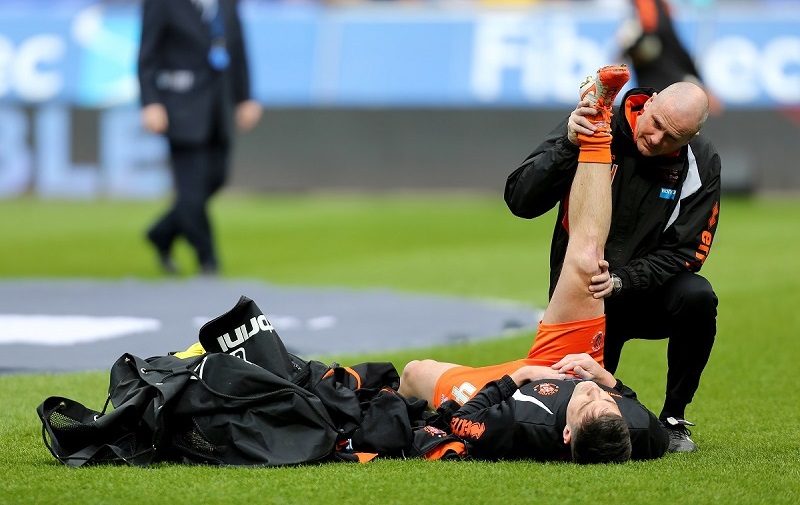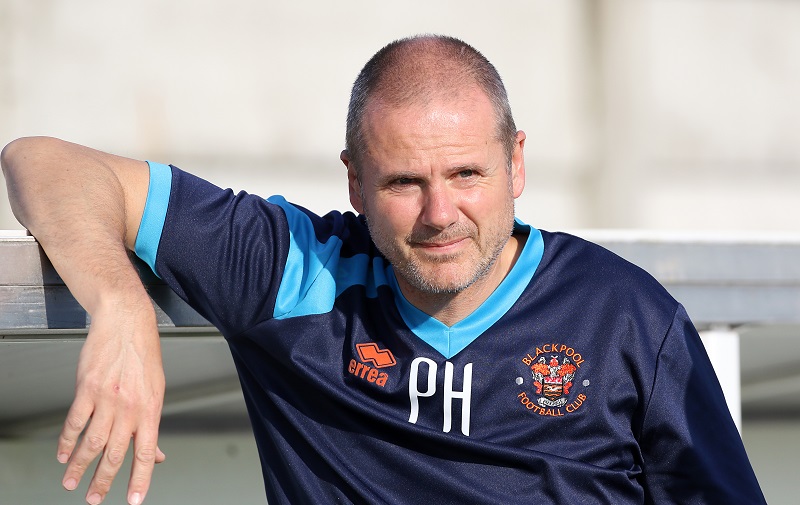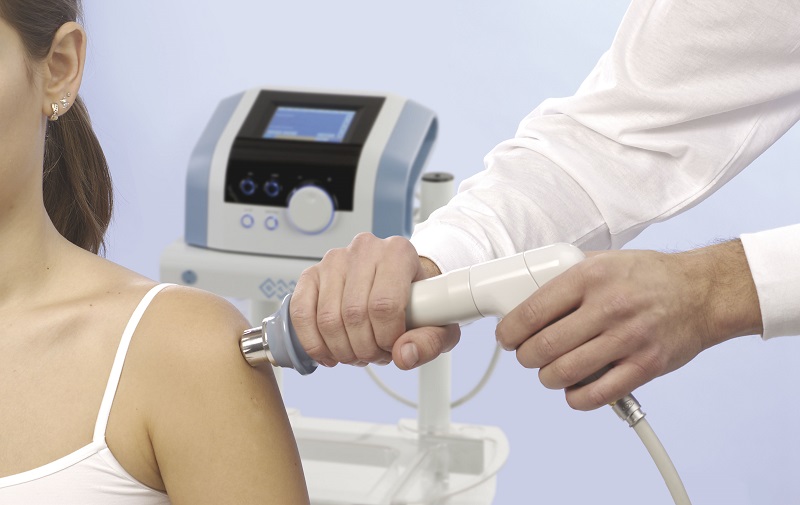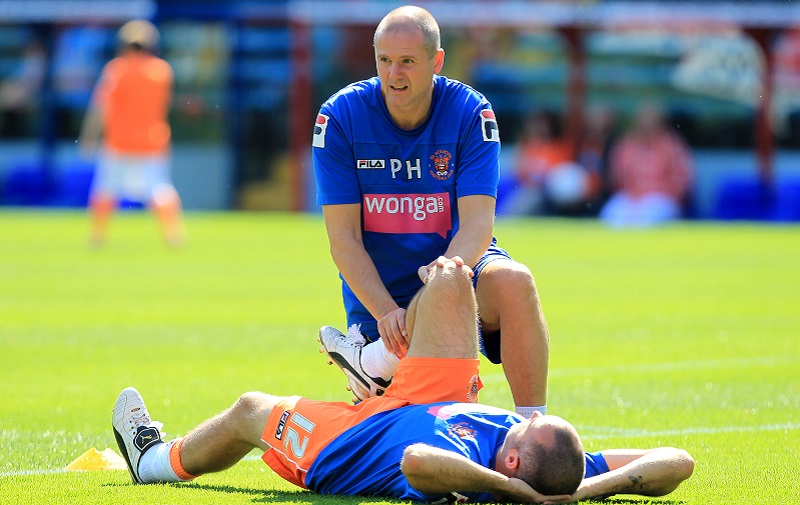- 286 Clifton Drive South, Lytham St Annes, FY8 1LH
- info@philhornerphysiotherapy.co.uk
- 07782 317 947
For a professional footballer it is vital to trust the physio he works with. The way Phil has diagnosed and treated my injuries has been perfect and he has gained my trust and respect as a professional.
Andrea Orlandi (Barcelona FC, Swansea City, Brighton, Blackpool FC).
What Conditions We Treat
Musculoskeletal problems involving muscles, tendons, ligaments, joints, nerves, fascia, bones and vertebral discs. We offer expert treatment and management of most injuries, conditions, pathologies, diseases and dysfunctions of the musculoskeletal system.
Some of the more common problems we encounter are:
-
Back pain
Whether triggered by poor posture, lifting incorrectly, trauma or some other mechanism the majority of people are affected by back pain at some point in their life. Depending on the nature of the problem and the circumstances and preferences of the patient back pain can be treated with joint mobilisations, manipulation and massage therapy amongst other modalities. Electrotherapy may be used to reduce associated muscle spasm and to give pain relief. This treatment will usually be augmented with an individually tailored exercise programme which can significantly improve treatment outcome and will aim to reduce the risk of recurrence of the problem.
-
Sciatica
Irritation of the sciatic nerve is a problem that is often associated with lower back problems, though not exclusively so, and is commonly referred to as sciatica. Symptoms may vary from buttock and posterior leg pain to weakness or numbness of the leg or a mixture of these. It can vary from severe, constant, debilitating pain to mild, intermittent discomfort. Commonly caused by a lumbar spine disc prolapse it can also be caused by spinal stenosis (a narrowing of the spinal canal), lumbar disc degeneration / disease, spondylolisthesis (one vertebrae ‘slipping' on another) and muscular imbalances / trigger points in the gluteal muscles. It is also commonly encountered in pregnancy. Reduction of pain and inflammation, a return to normal function and advice and exercises to help reduce the risk of recurrence are the aims of treatment.
-
Neck pain
Common symptoms originating from the neck include pain, movement restriction, headaches, muscle spasm and if there is any nerve root compression possibly arm and hand pain, pins and needles or weakness. Causes of neck problems can be trauma (as in whiplash), degenerate disease (cervical spondylosis), or prolonged poor posture. Treatment is again concentrated on identifying the cause of the symptoms and implementing a treatment plan including manual therapies, exercise prescription, patient education and advice in order to restore function and minimise symptoms.
-
Headaches
Many people are surprised to learn that many headaches are caused by joint dysfunction in the upper cervical spine and/or muscle spasm and trigger points in the surrounding musculature. There are obviously many other causes of headaches but persistent headaches that are musculoskeletal in nature are commonly relieved by physiotherapy.
-
Strained Muscles, tendons and ligaments
Commonly caused by trauma these injuries respond well to early physiotherapy intervention. From the acute inflammatory phase through sub-acute and rehabilitation phases physiotherapy will gradually progress you through the stages of recovery with treatment, exercise prescription and advice. Not all muscle, tendon and ligament problems are caused by acute trauma. Poor postural habits, poor biomechanics and the degenerative nature of tendons can cause significant problems. Again physiotherapy will assess the nature and source of your problem and assist and guide you through the rehabilitation process.
-
Sports injuries
These can range from significant trauma to minor discomfort. They can be caused by a direct mechanism (impact, twist, sudden deceleration etc) or by an indirect mechanism (overuse, poor biomechanics, poor technique etc). Experience and expertise in managing these problems is important in order to recognise the root cause of the dysfunction and to provide a rehabilitation pathway to alleviate symptoms and improve performance.
-
Arthritis
Arthritic pain whether caused by osteoarthritis, rheumatoid arthritis or any of the many other inflammatory arthritic conditions can be debilitating and significantly affect a person's quality of life. Whilst the joint damage caused by these degenerative conditions is irreversible the secondary symptoms such as pain, muscle stiffness and joint restriction can all be helped with physiotherapy. Patient education, management advice, joint mobilisations, prescriptive exercise, massage, trigger pointing and electrotherapy are all modalities that can significantly help restore function and give symptomatic relief.
-
Overuse injuries
Whether in the workplace, a sporting or leisure environment repeated activity can lead to gradual onset of muscle, tendon, ligament, joint or even bone pain (as seen in stress fractures). Identifying the mechanism causing the symptoms and modifying the behaviour is the key to resolving these problems. If the injury is simply treated without identifying the cause it is very likely to return subsequently. Examples of aggravating mechanisms can be poor posture, poor biomechanics, poor technique, muscle imbalances, poor footwear, wrong equipment and poor recovery strategies. An experienced physiotherapist can help to identify the cause of the problem and provide advice, education and prescriptive exercise to help alleviate symptoms and prevent recurrence.
-
Posture related pain
It is universally accepted that poor posture leads to musculoskeletal dysfunction and ultimately to injury and symptomology. Our postures develop over years and it is unrealistic to expect dramatic changes to be made in a relatively short period of time. However, small postural changes can have a dramatic effect on adverse symptoms and lead to a resolution of pain and dysfunction. There are a number of commonly found postural dysfunctions which an experienced physiotherapist will identify and be able to effect with manual therapies and exercise prescription along with education and advice to significantly benefit the patient. Whilst some postural dysfunctions may be very longstanding it is never too late for some for some corrective rehabilitation.
-
Shoulder Pain
The shoulder is a complex joint which when injured can cause significant problems with day to day activities. Without good range of movement at the shoulder simple tasks like dressing and washing can become very difficult. The shoulder can be injured easily by falling but is also commonly aggravated by postural and biomechanical faults. Due to the complexity of the joint and the numerous movements required for normal function it is important to seek early expert advice and treatment to avoid symptoms progressing as movement dysfunction can become ingrained.
-
Elbow, wrist and hand pain
If you remind yourself how important the dexterity of your hands is to everyday life both at home and at work it will emphasise the importance of seeking professional help at the earliest opportunity should you suffer an injury to any of these joints. Common problems more usually referred to as 'tennis elbow' and 'golfers elbow', carpal tunnel syndrome in the wrist and post fracture or post-surgical rehabilitation are all circumstances that will significantly benefit from physiotherapy intervention.
-
Hip and knee pain
Your Hip and knee joint need to be able to take the full weight of your body through them for you to be able to function normally. If you run, jump, twist and turn or simply walk up and down stairs the forces placed on these joints are considerably more. If you consider how often you put these forces through your legs it is not surprising that the hip and knee joints are particularly vulnerable to injury and pain. Whether it's a sporting knee with acute or post-surgical trauma or an osteoarthritic hip, or vice versa that's affecting your quality of life, rehabilitation advice and treatment from an experienced physiotherapist may greatly improve your symptoms.
-
Ankle and foot pain
The average person easily takes over 1 million steps in a year so is it any surprise that the foot and ankle are prone to damage from trauma and overuse. Injury can be caused by poor biomechanics, overtraining, degenerative disease or simple trauma. Common problems include ligament and tendon damage, plantarfasciitis, metatarsalgia, osteoarthritis, achilles tendinopathy and heal pain.
-
Post-Surgical rehabilitation
To maximise the benefits of surgical intervention whether for an acute sporting injury of from a chronic degenerative problem a comprehensive rehabilitation programme is essential. Correct progression of loading and exercise, early management advice and treatment are best provided by an experienced physiotherapist. Don’t lose the benefits of surgery through inadequate rehabilitation.
-
Post-Fracture rehabilitation
Your fracture may have healed well in plaster or through surgical fixation but what has happened to the associated joint, ligament, tendon and muscle damage caused by the original injury and subsequent immobilisation. Early physiotherapy intervention after fracture healing, or during if surgically fixed, can prevent long term disability and maximise recovery.
With all these problems thorough and comprehensive assessment and examination can help to get to identify the source of the dysfunction. Experienced and skilled physiotherapy can facilitate tissue healing, promote recovery, reduce symptoms and enable a return to normal activity whilst helping to prevent injury recurrence or providing best management for long term musculoskeletal problems.
For more information on the conditions we treat and services we offer, or to book an appointment please call 07782 317 947, email me at info@philhornerphysiotherapy.co.uk or Book online
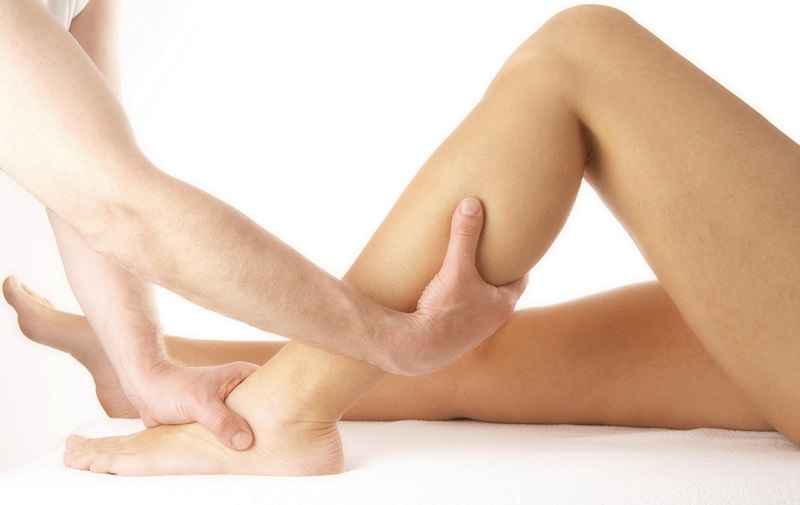
Muscle Energy Technique
Muscle energy technique (MET) is another form of manual (hands on) therapy that is used by the therapist to restore function in the musculoskeletal system.

Myofascial Release
Therapists often use another form of manual therapy called myofascial release to relieve muscle dysfunction and pain.
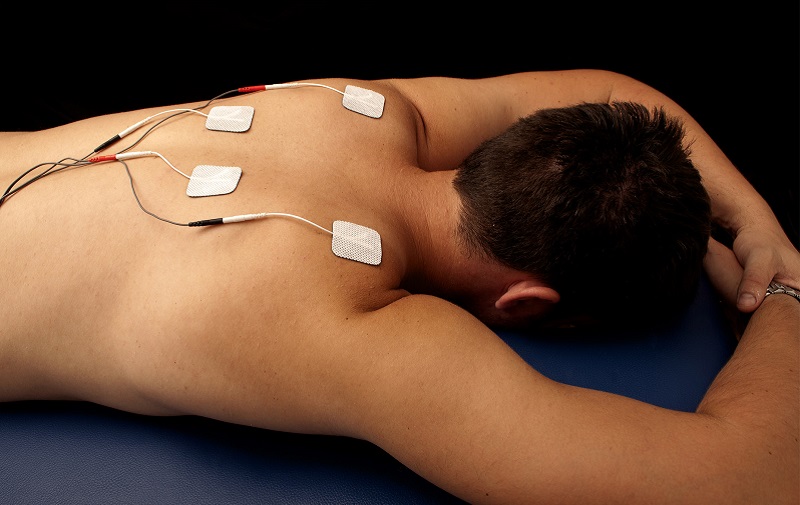
Electrotherapy
Electrotherapy is often used by a therapist as an adjunct to manual therapy in the treatment of musculoskeletal dysfunction & pain.

Postural Re-Education
Most people are aware that poor posture can have a direct effect on the risk of developing musculoskeletal problems.
DO YOU STILL HAVE A QUESTION REGARDING OUR SERVICES?
For more information on the conditions we treat and services we offer, or to book an appointment please feel free to get in touch.

